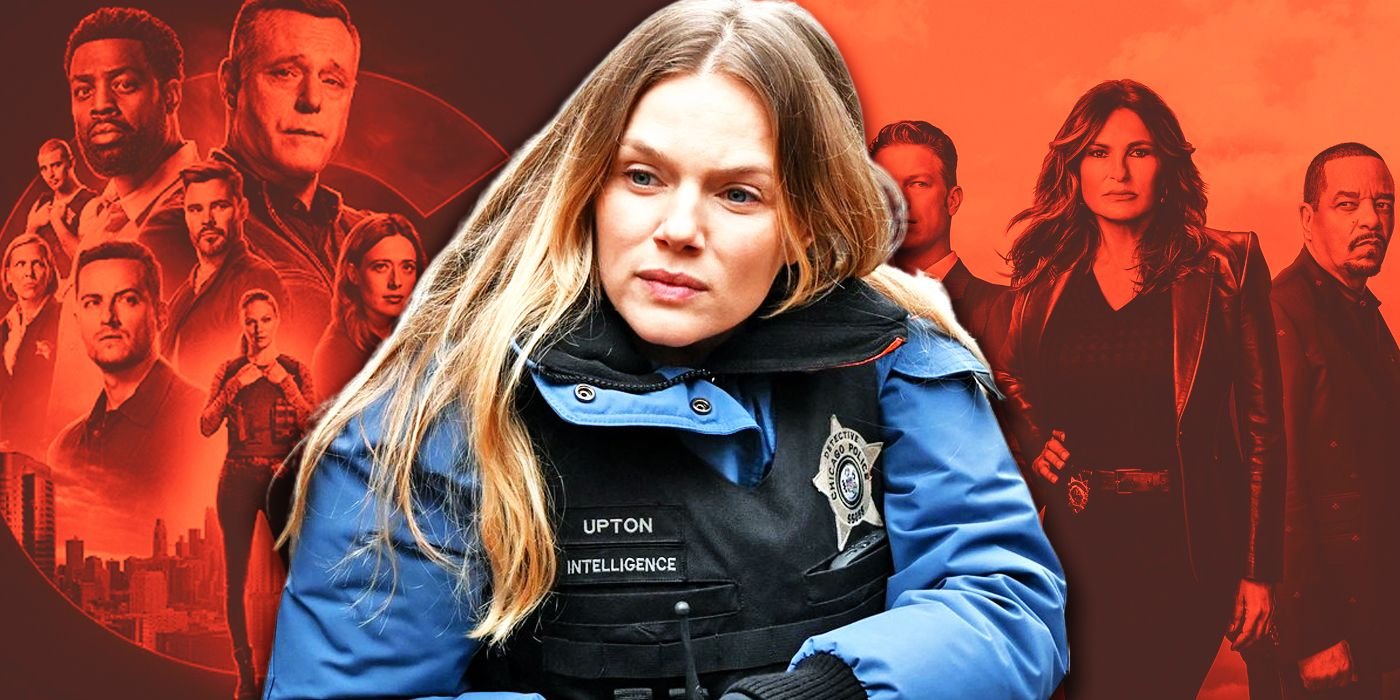Summary
-
Chicago P.D.
opened its 11th season with an episode that looked at both the mental health of officers and how police treat civilians struggling with mental health issues. -
Law & Order: SVU’s
first three episodes have Olivia Benson struggling with the kidnapping of a young woman and taking the next step in her mental health treatment. - Wolf Entertainment has covered mental health before but is expanding and elevating the conversation with these storylines.
When viewers think of police procedurals like Chicago P.D. and Law & Order, the first thing they think of isn’t mental health. Though the shows have changed over time, many police procedurals focus on showcasing — and elevating — the police force, which struggles to handle mental health issues in the real world. This season, two of Dick Wolf’s police procedurals appear to be trying to change the conversation.
Dick Wolf’s procedural shows are accustomed to changing the conversation around tough topics. Law & Order: SVU, for example, has had a huge impact on the cultural conversation around sexual assault, sexual violence, and child abuse. Now Law & Order: SVU and Chicago P.D. are taking up the mantle and using the cultural zeitgeist to boost the conversation about how the police force handles mental health both within its ranks and with civilians.
Chicago P.D. Pushes Upton to the Brink
- Season 11 will be the sixth and final season of Chicago P.D. for Tracy Spiridakos, who plays Hailey Upton.
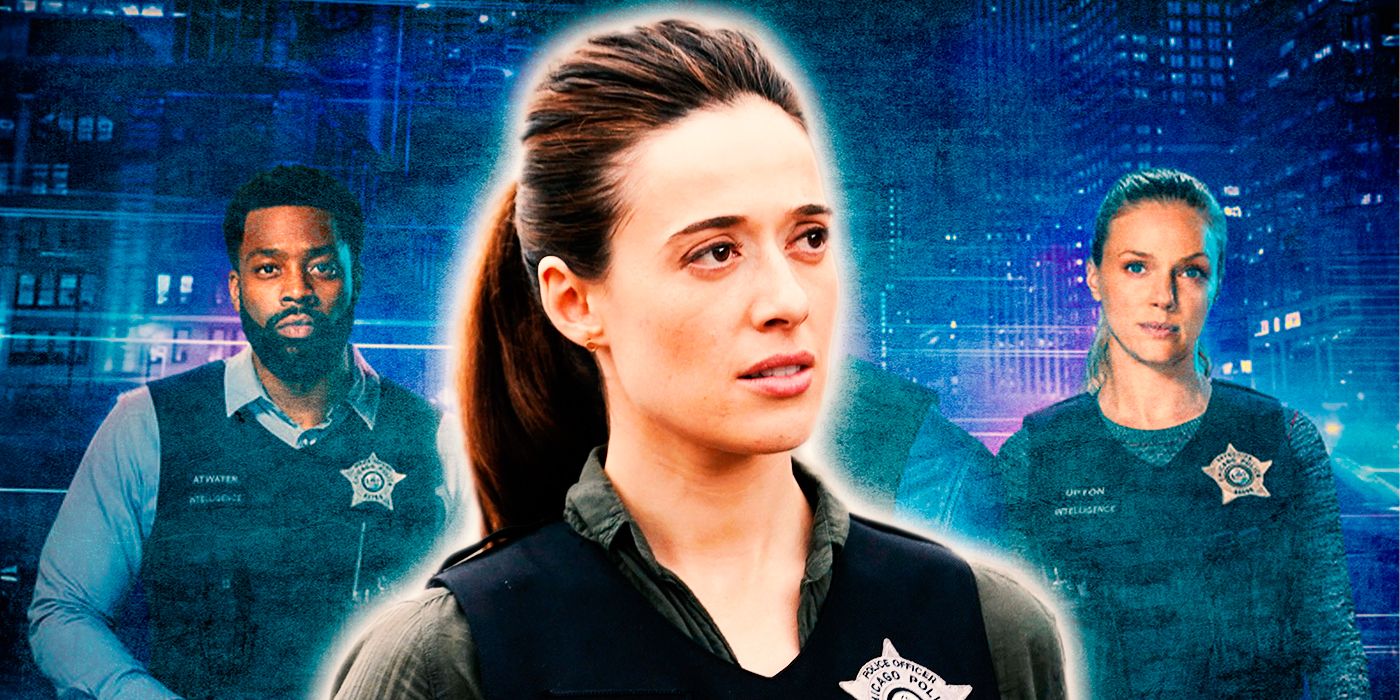
REVIEW: Chicago PD Season 11, Episode 3 Lets Burgess Soar, But Misses Its Point
Chicago PD Season 11, Episode 3, “Safe Harbor” is great for Burgess and Burzek fans, but the NBC show misses the mark in trying to be timely.
In the premiere of Chicago P.D., Season 11, Episode 1, “Unpacking,” Detective Hailey Upton (Tracy Spiridakos) shadows a crisis task force for the day. Their first call deals with a man having a mental health crisis while trying to enter a locked building. Though told to stay back, Upton lets her instincts take over and determines at the moment that the man is a danger, ultimately attempting to cuff him and then falling through a glass door when he resists. When the man is in custody, Upton discovers two people in an apartment in the building the man was trying to get into; one of them is dead, and the other is injured.
Upton’s instincts told her that the man having a mental health crisis was responsible for the murder and attempted murder of these two people, but her instincts were wrong. The episode showed the nuance of attempting to understand whether someone dealing with a mental health crisis is actually dangerous and how complicated it can seem to understand what someone experiencing a mental health crisis might need. What Upton learned is that in order for anyone, but particularly the police, to appropriately serve someone dealing with a mental health crisis, one needs to be patient and carefully evaluate before any action is taken. When Upton realizes she misinterpreted the situation, her mental health takes a hit, but Upton is not the only member of the Intelligence Team dealing with mental health issues in Season 11.
Adam Ruzek (Patrick John Flueger), who has recovered from the gunshot wound he received in Season 10, Episode 22, “A Better Place,” begins Season 11 still waiting to return to the police force, and audiences see the toll this has taken on his mental health in both “Unpacking” and Season 11, Episode 2, “Retread,” which has a central focus on Ruzek. Kim Burgess (Marina Squerciati) is also affected by Ruzek’s delayed return to the CPD, which is seen in “Retread” and in Season 11, Episode 3, “Safe Harbor,” though by the end of “Safe Harbor,” Burgess and Ruzek realize that it is their relationship that ultimately grounds them both. While Chicago P.D. has referenced mental health in previous seasons, opening season 11 with each member of the team struggling with their own issues and having an episode centered around the CPD’s response to civilians dealing with mental health crises is an important step in pushing the conversation about mental health and the criminal justice system forward.
Law & Order: SVU Looks at EMDR
- Law & Order: SVU is currently in its 25th season. It is the longest-running primetime television drama in history, and Olivia Benson is the longest-running primetime live-action television character ever.
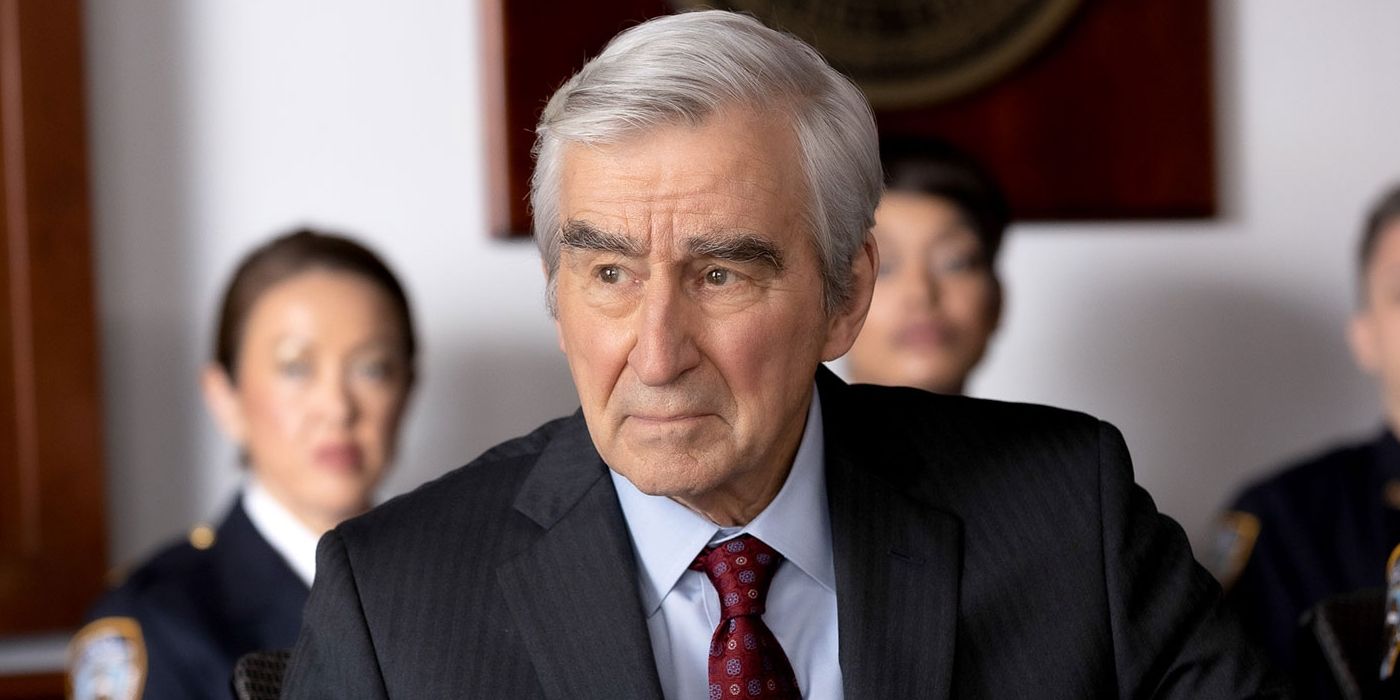
‘The Time Has Come’: Sam Waterston Announces Law & Order Departure
After more than three decades and 400 episodes, Sam Waterston will say goodbye to District Attorney Jack McCoy.
Law & Order: SVU has never shied away from the idea that police officers need mental health support. While early seasons contained the rhetoric that police officers who needed psychological support were weak or unfit, over the last 25 seasons, the show has changed its own rhetoric. In Season 21, Episode 12, “The Longest Night of Rain,” after a police officer dies by suicide outside a retirement party, Olivia Benson (Mariska Hargitay) brings in Dr. Peter Lindstrom (Bill Irwin) to talk to her squad. A major component of the episode is that too many police officers are dying by suicide, and when Benson introduces her squad to Dr. Lindstrom, she makes a point of telling the room, “We know that this is a stigma, but the department policies have changed, thank God, and asking for help is no longer a sign of weakness.”
Over the first four episodes of Season 25, audiences have seen Olivia Benson struggle with the kidnapping of a teenage girl, Maddie, whom Benson spotted in the passenger seat of her captor’s van. Benson and her team didn’t yet know that Maddie had been kidnapped, but Olivia continues to blame herself for not knowing that Maddie was kidnapped just by looking at her. While Olivia has always taken missing kids to heart, this particular case has had a significant — and surprising — impact on her mental health. At the end of Season 25, Episode 3, “The Punch List,” Benson attends EMDR (Eye Movement Desensitization and Reprocessing) therapy for the first time. This therapy technique uses specific eye movements to help patients process traumatic memories differently, and Season 25, Episode 4, “Duty to Report,” shows Olivia’s desire to work through some of the issues she has long dealt with while also showcasing the EMDR process itself.
Olivia Benson is no stranger to difficult cases or cases that linger. In Season 20, Episode 14, “Part 33,” Benson shares with Rollins that she still deals with trauma from her two abductions by the same man, William Lewis, in Season 15. It’s not unusual for trauma to linger, and while Olivia has been in therapy since escaping from Lewis the first time, she admits to the EMDR therapist that there are things she continues to cling to that talk therapy doesn’t seem to be helping with. Seeing both Benson’s previous talk therapy and her new venture into EMDR is valuable for the conversation around mental health, not just for police officers but for people in general. Anytime someone on television or in a film talks about mental health or shows themselves going through mental health care, it chips away at the remaining stigma. Olivia Benson’s journey over the last 25 seasons has often inspired others to deal with their own experiences with sexual assault or handle their own mental health issues, and there’s no reason her foray into EMDR can’t do the same.
Mental Health Remains a Major Issue for the Police
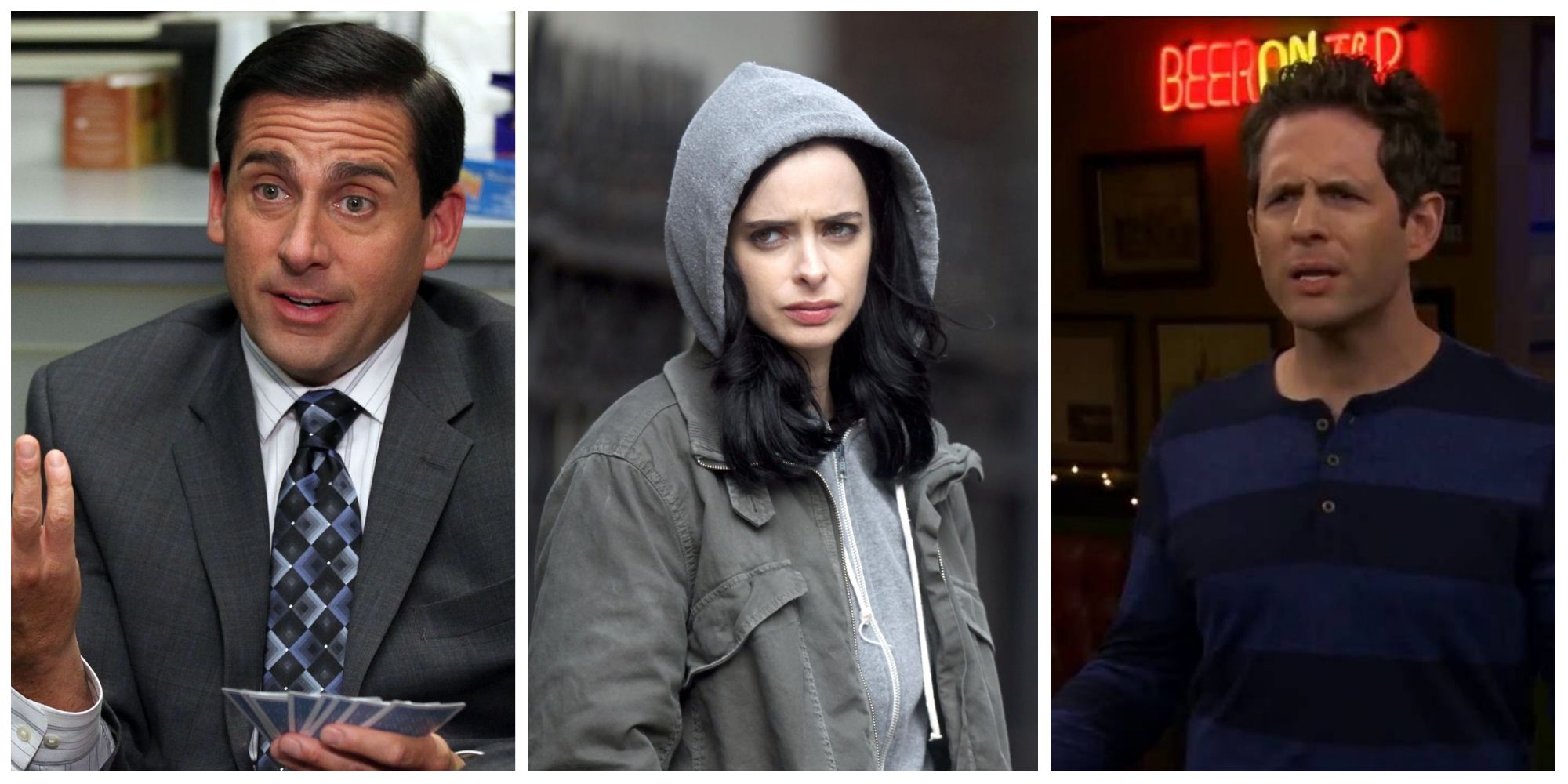
10 TV Shows That Accurately Portray Mental Health Conditions
It’s important for television to portray mental health conditions in a relatable, easy-to-understand and, most importantly, accurate way.
Police procedurals are not perfect. In fact, they’re far from it. The promotion of the police as either inherently good or inherently bad can be oversimplified and dangerous. Given the intricacies of the criminal justice system in the United States, the racist history of the police force, and discrimination against people with mental health issues that come from the police – and the public – it can be complicated for a police procedural to address every nuance. That’s why it’s so important when shows like Law & Order: SVU and Chicago P.D. make a point of tackling an issue that is faced by the real-world police.
In a February 8, 2024, appearance on The Tonight Show, Mariska Hargitay discussed Olivia Benson’s arc of healing and how big of a role it will play in SVU’s 25th season. This shift in SVU’s overarching story is a valuable one. The more shows with cultural gravitas, like Law & Order: SVU and Chicago P.D., or any of Dick Wolf’s other shows, talk about topics like mental health, the quicker the stigma will fall away. What will be most valuable to see over the next several weeks is how both shows continue to address not just the mental health of the police officers but also how police officers on these shows communicate with civilians, regardless of what type of mental health crisis they might be experiencing or how dangerous they might seem.
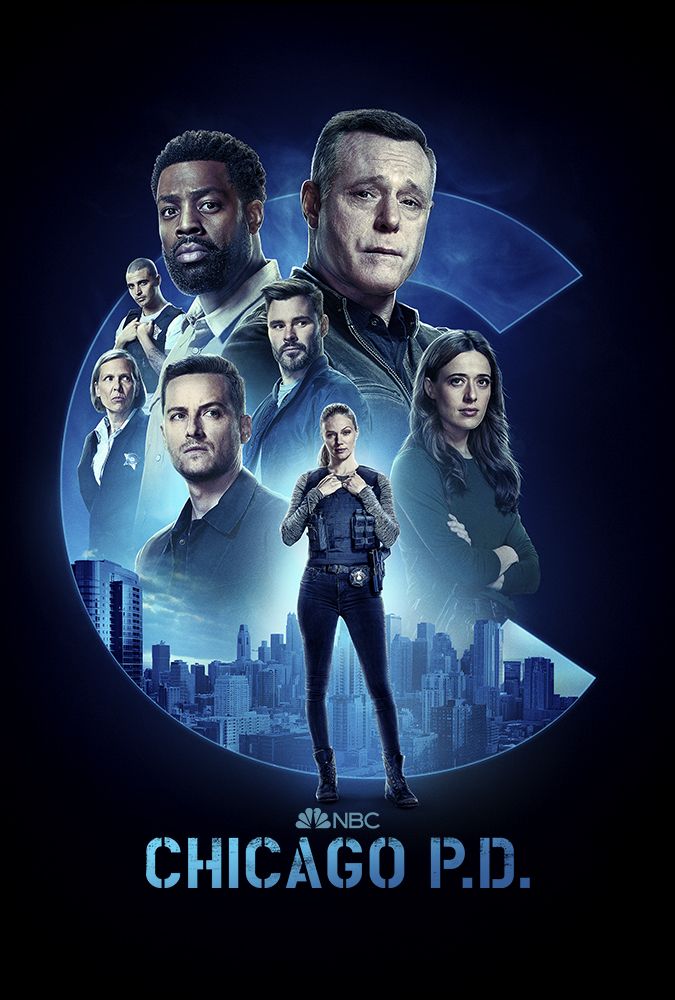
Chicago P.D.
Follows District 21 of the Chicago Police Department, made up of two different groups: the uniformed cops and the Intelligence Unit.
- Release Date
- January 8, 2014
- Creator
- Dick Wold and Matt Olmstead
- Cast
- Jason Beghe , Marina Squerciati , LaRoyce Hawkins , Patrick Flueger , Tracy Spiridakos , Benjamin Levy Aguilar
- Seasons
- 11

